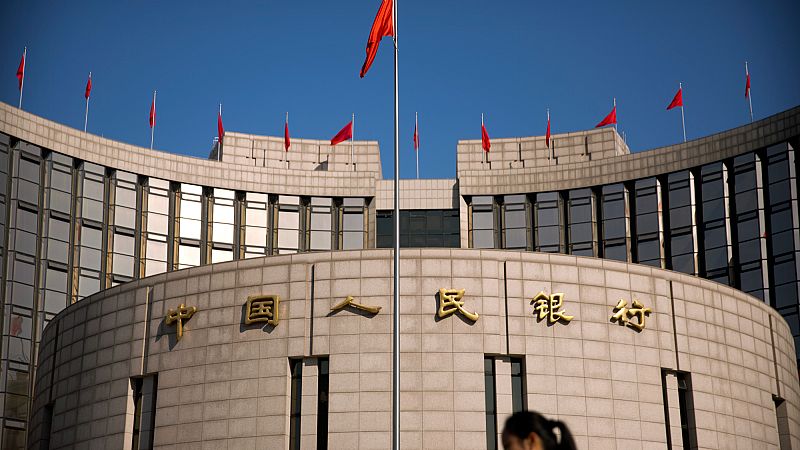
China has announced a barrage of measures meant to counter the blow to its economy from US President Donald Trump's trade war, as the two sides prepare for talks later this week.
Beijing’s central bank governor and other top financial officials outlined plans to cut interest rates and reduce bank reserve requirements to help free up more funding for lending.
They also said the government would increase the amount of money available for factory upgrades and other innovation, as well as for elder care and other service businesses.
High tariffs imposed by Trump have begun to take a toll on China’s export-dependent economy, which was already under pressure from a prolonged downturn in the property sector.
Late Tuesday, China and the US announced plans for talks between Treasury Secretary Scott Bessent, US Trade Representative Jamieson Greer and Chinese Vice Premier He Lifeng later this week in Geneva, Switzerland.
The agreement to talk comes at a time when both sides have remained adamant, at least in public, about not compromising on the tariffs. The talks “could be the pivot point that either locks in fragile confidence or re-ignites the ‘trade war’ inferno,” Stephen Innes of SPI Asset Management said in a report.
Both the US and Chinese economies have been showing signs of strain, after a spurt of activity as companies and consumers rushed to beat tariff increases.
Business sentiment and new export orders continue to lag
The US economy contracted by 0.3% from January to March this year. The Chinese economy grew 5.4% on an annual basis in the first quarter of the year, as factories ramped up production to fill a spike in orders.
However, economists question the validity of the statistics, and more recent reports show a deterioration in new export orders and business sentiment.
As part of the support announced by China on Wednesday, the Governor of the People’s Bank of China (PBOC), Pan Gongsheng, said China’s reverse repo rate was reduced to 1.4% from 1.5%. The reverse repo rate is the rate on commercial banks' deposits with the central bank.
The PBOC’s lending rate to commercial banks was cut by 0.25 percentage points to 1.5%.
The required reserve ratio, or portion of funds banks must hold in their reserves, was cut by 0.5%. Pan said that would free up 1 trillion yuan (€121.9 billion) in extra cash.
The central bank also reduced interest rates on five-year housing loans.
Asian financial markets remain cautious
Financial markets have been reeling as the world’s two largest economies remained embroiled in a standoff over Trump’s tariffs of as high as 145% on imports of most Chinese products. China has retaliated with tariff hikes of up to 125% on US goods and stopped buying most American farm products.
The news of the extra boost for the economy and markets, plus the plans for China-US trade talks, pushed share prices up more than 2% in Hong Kong and 0.5% in Shanghai early Wednesday. US futures also advanced.
The muted movements were to be expected, Tan Jing Yi of Mizuho Bank said in a comment.
“We do not expect reaction to be euphoric,” Tan said. “Point being, any trade resolution would likely take a long time and in the near term, there may be some piecemeal exemptions or tariff reductions on certain goods.”







